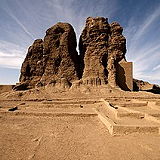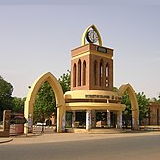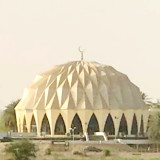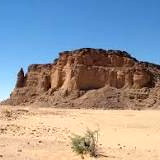
|
Sudan Sudan Last Updated: 08/13/2023 |
| Sudan is a country located in northeastern Africa, bordered by Egypt to the north, the Red Sea to the northeast, Eritrea and Ethiopia to the east, South Sudan to the south, the Central African Republic to the southwest, Chad to the west, and Libya to the northwest. Sudan is known for its diverse landscapes, rich history, and cultural heritage. It had a population of 45.7 million people as of 2022. | |
| - Geography: Sudan's geography varies from deserts in the north to fertile plains in the south. The Nile River, which flows through the country, has historically played a crucial role in the development of civilizations and agriculture. - Capital and Major Cities: The capital city of Sudan is Khartoum, which is the largest city and serves as the political and economic center. Other major cities include Omdurman, Port Sudan, and Nyala. - Cultural Diversity: Sudan is ethnically and culturally diverse, with numerous ethnic groups and languages. The country's culture is influenced by its Arab, African, and Islamic heritage. - History: Sudan has a rich history, with ancient civilizations such as the Kingdom of Kush dating back to antiquity. The Nile Valley and its archaeological sites are of significant historical importance. - Language and Religion: Arabic is the official language of Sudan, and Islam is the predominant religion. The country has a mix of Sunni and Sufi traditions. - Economy: Sudan's economy is primarily based on agriculture, including crops like sorghum and millet, as well as livestock. Natural resources such as oil and minerals also contribute to the economy. - Conflict and Division: Sudan has faced periods of conflict and division, leading to the secession of South Sudan in 2011. This division marked the establishment of two separate countries. - Natural Resources: Sudan is known for its oil reserves, and the country has been an important player in the global oil market. Gold, copper, and other minerals are also found in Sudan. - Cultural Heritage: Sudan has a wealth of archaeological sites, such as the ancient pyramids of Meroe and historical cities like Dongola. These sites reflect the country's historical importance and cultural heritage. - Nile River: The Nile River is a lifeline for Sudan, supporting agriculture and providing water resources. The Sudanese Nile is also known for its picturesque landscapes. - Wildlife and Conservation: Sudan is home to diverse wildlife, including species such as elephants, giraffes, and various bird species. Conservation efforts aim to protect the country's natural heritage. - Hospitality and Cuisine: Sudanese hospitality is well-known, and traditional Sudanese cuisine often includes dishes made from millet, sorghum, and vegetables. Staple foods like ful medames - mashed fava beans - are popular. Sudan's blend of history, culture, and natural beauty makes it a unique destination for travelers interested in exploring its landscapes, heritage, and people. | |
Wikipedia
Sudan » Sdn
Place » City

|
Khartoum, Sudan Place » City Khartoum is the capital and largest city of Sudan, a country located at the confluence of the Blue Nile and White Nile rivers, making it a strategic location in terms of transportation and trade. As the political, economic, and cultural center of Sudan, Khartoum plays a significant role in the country's history, administration, and development. It had a population of 5,274,321 in 2021. 61 views 💖 1Sudan |

|
Al Nilin Mosque Place » Tourism Al-Nilin Mosque is a mosque in Omdurman, Sudan. It is located on the western banks of the Nile river. 326 views 💖 1Omdurman, Sudan |

|
Jebel Barkal Place » Tourism Jebel Barkal or Gebel Barkal is a very small mountain located some 400 km north of Khartoum, Sudan. 230 views 💖 1Sudan |
Write a Review :
Sudan
|
|